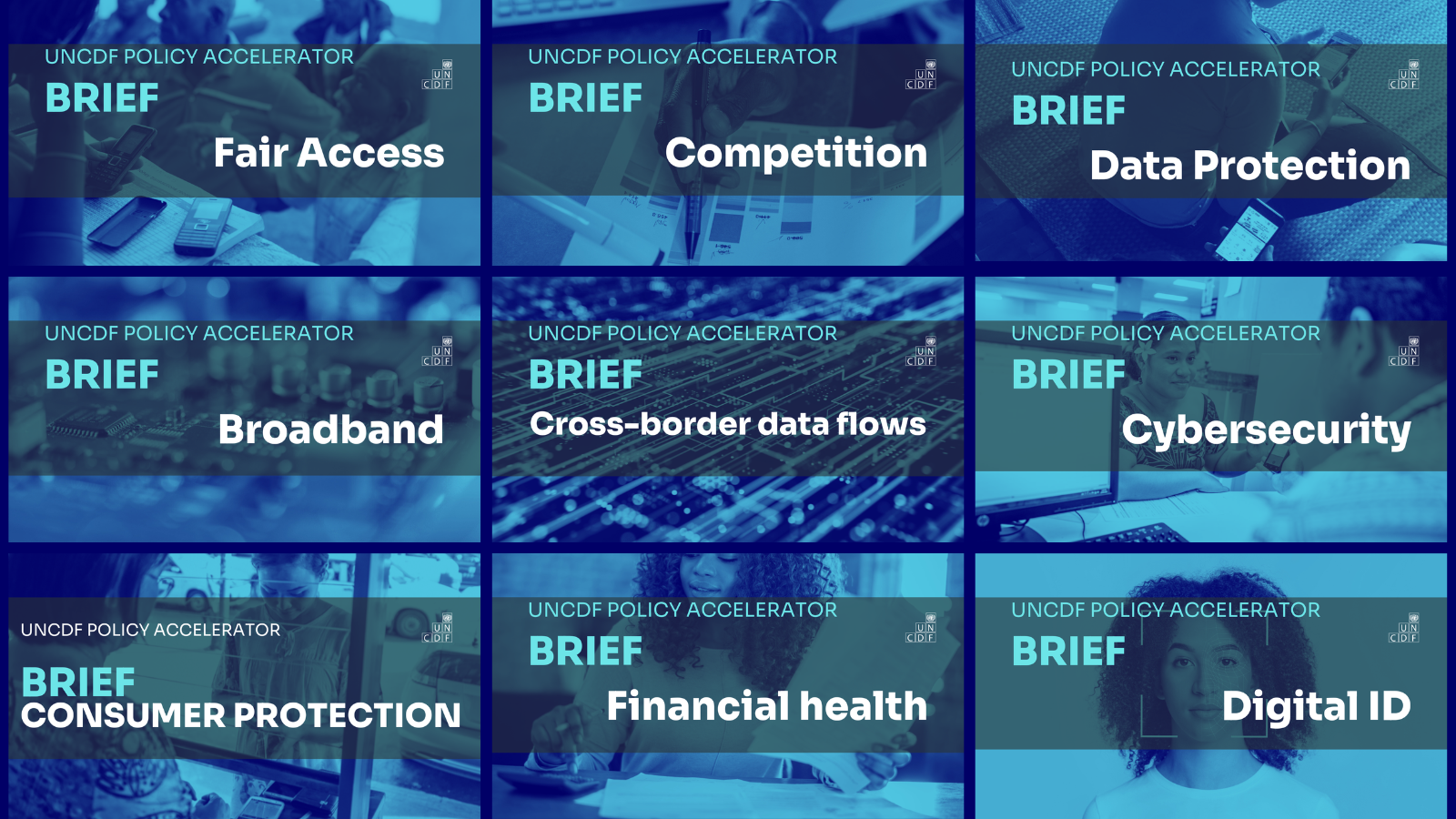
Briefs
Explore our briefs to learn about the foundational policy and regulatory topics that define the ecosystem for inclusive digital finance and digital public infrastructure.
Broadband networks lay the groundwork for fostering inclusion in the digital economy by providing Internet access to billions of people all over the world.
Consumer protection policy defends consumers and seeks to reduce the information asymmetries between providers and consumers that impede informed choices.
A strong data protection framework helps foster consumer trust and use of digital tools, which can incentivize investment, competition and innovation in the digital economy.
As economies shift to digital and online models, threats can quickly outpace traditional approaches to data security. Governments and organizations need to be proactive in creating and adapting systems to face these threats.
An effective digital ID program democratises access to electronic transactions, and services that are offered digitally, like education, healthcare and financial services.
Competition can be beneficial to the end-user but — especially in the digital economy — competition laws and policies must be in place to protect the consumers and their data
Fair access to communication channels plays an important role in fostering inclusion by preventing operators of communications networks from unfair discrimination.
Cross-border data flows are a crucial part of digital economies — but regulations must be put into place that protect industries, populations, and territories.
Financial health encompasses important aspects of an individual’s financial life: security, control and freedom. Governments can help create an environment where people can effectively manage their day-to-day economic needs and invest in the future.









